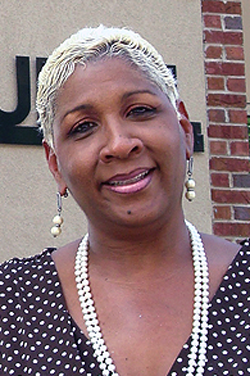Warrior in HIV/AIDS battle, Bambi Gaddis at White House for release of HIV/AIDS strategy
August 13, 2010

Bambi Gaddis
Arnold School alumna Dr. Bambi Gaddis was present at the White House on July 13 when President Obama revealed the first-ever domestic National HIV/AIDS Strategy for the United States.
That Gaddis was in Washington for this important event is no surprise to those who know her and have watched her advocacy for children, adults and families fighting HIV and AIDS. Director of the S.C. HIV/AIDS Council, Gaddis is a longtime warrior in the battle against the disease.
Gaddis was invited to the press briefing, along with HIV/AIDS advocates, researchers, healthcare professionals and community leaders from throughout the United States. The announcement capped a series of expert meetings as well as consultations with affected communities across the nation.
Gaddis said the Obama administration’s new HIV/AIDS strategy for the United States has again spotlighted an issue that has been fading from the public consciousness.
“The strategy revitalizes this health issue as a priority, which it has not been in recent years. It certainly is a shot in the arm to me,” Gaddis said.
An estimated 56,000 people in the United States become infected with HIV annually, and, according to a prepared statement from the White House, the strategy to lower the number calls for a more coordinated national response to the epidemic.
Gaddis said the new strategy has three key components:
- Reducing new HIV infections. “At the end of the day, you can’t control the disease if you don’t stop the inflow of new cases.”
- Increasing access to medical care. “People who are not in a care environment are more likely to continue to spread the disease.”
- Improving health care access for people at highest risk: “That includes gay and bisexual black men and African-American women.”
During the event, President Obama said, “I know that this strategy comes at a difficult time for Americans living with HIV/AIDS, because we’ve got cash-strapped states who are being forced to cut back on essentials, including assistance for AIDS drugs. I know the need is great. And that’s why we’ve increased federal assistance each year that I’ve been in office, providing an emergency supplement this year to help people get the drugs they need, even as we pursue a national strategy that focuses on three central goals.”
Those goals, he said, are prevention, treatment and reducing health disparities by combating the disease in communities where the need is greatest.



_01.jpg)
_02.jpg)